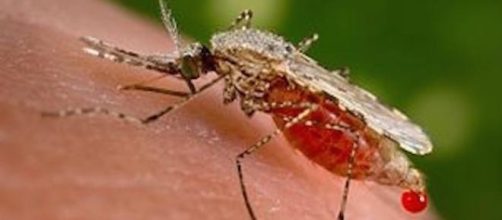Malaria is one of the most serious diseases of the world and every year kills millions of humans every year. However, in contrast to other diseases, malaria can be prevented and defeated.
This is the good news, but still, according to the World Health Organisation (WHO), 584,000 people died due to malaria in the year 2013. The highest numbers of malaria deaths occur in the sub-Saharan region of Africa, accounting for 90 % of cases. About 40 % of malaria deaths occur in Nigeria and the Democratic Republic of the Congo alone, reports the WHO.
In particular, children and pregnant women are at high risk.
According to the WHO, 78% of malaria-related deaths occur to children under five, making children one of the most vulnerable groups. Additionally, pregnant women are highly vulnerable since a pregnant women infected with malaria can transfer the disease to its unborn baby. Pregnant women and little children have very little immunity to malaria and consequently, they can die quickly if malaria is transmitted to them, according to the Centres for Disease Control and Prevention. On a global scale, in 2014, malaria transmissions occurred in 97 countries and beyond Africa, these cases also occurred in India, Myanmar, Sudan, Cambodia and Papua New Guinea, according to the WHO.
Everyone is at risk of getting malaria.
The most common way of getting infected of malaria is by a bite of a mosquito infected by a parasite. The effects on humans are normally high fever, shaking chills and flu-like illness. However, medical treatments, bed nets and mosquito spray can prevent malaria. Thus, prompt action and preventive health care can tackle the problem.
The malaria mortality rate was reduced by 47% worldwide and thanks to interventions about 4.2 million people were saved between 2001 and 2013 according to the WHO. The World Malaria Day 2015 is taking place on the 25th of April and different stakeholders, groups, international organizations will participate in actions to defeat the disease. Progress has been achieved, however, still too many people are dying due to inadequate care.
Standards of health care are not yet high enough in a lot of malaria endemic countries. Accordingly, insufficient health standards are impeding development and have to be improved in order to break this vicious circle.

